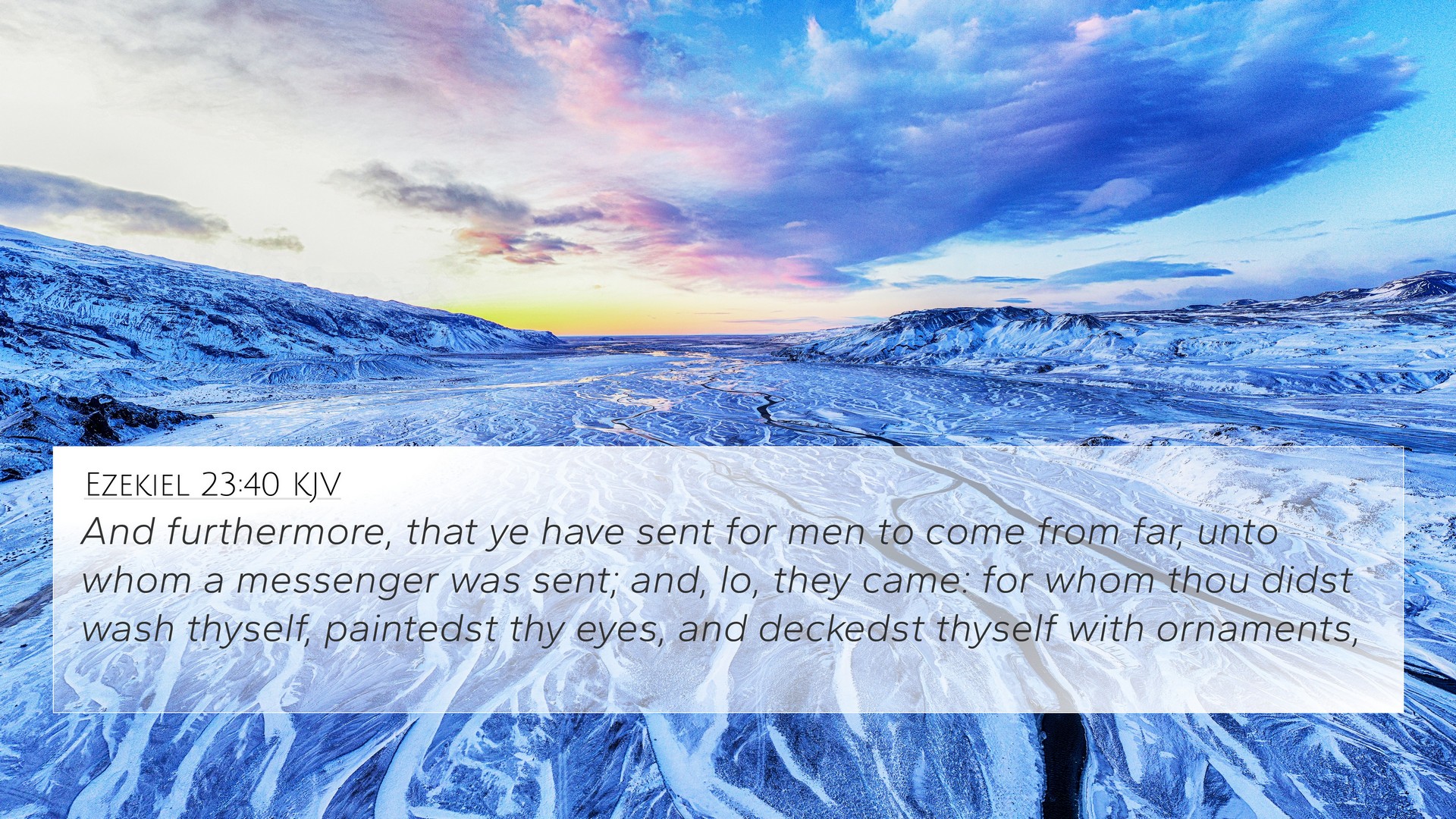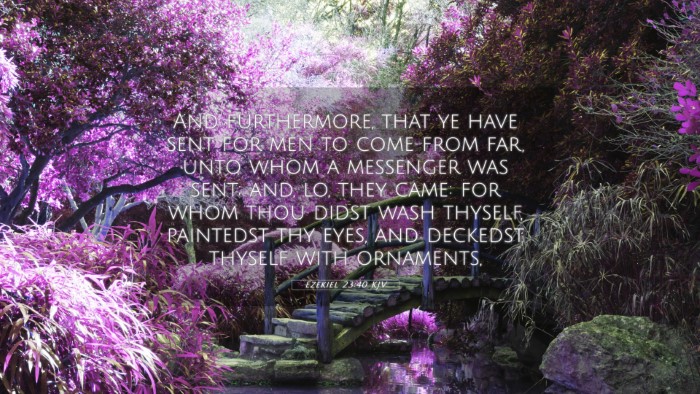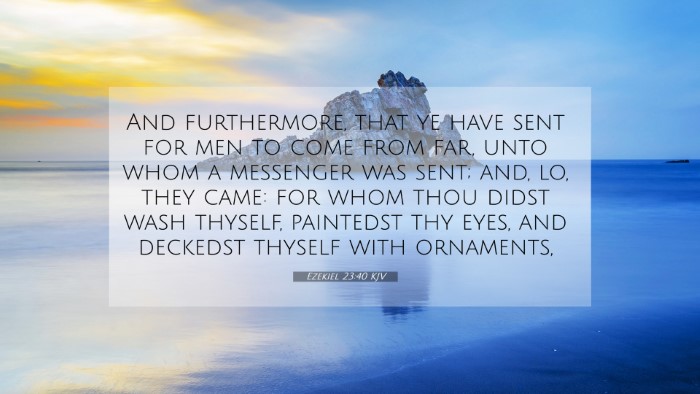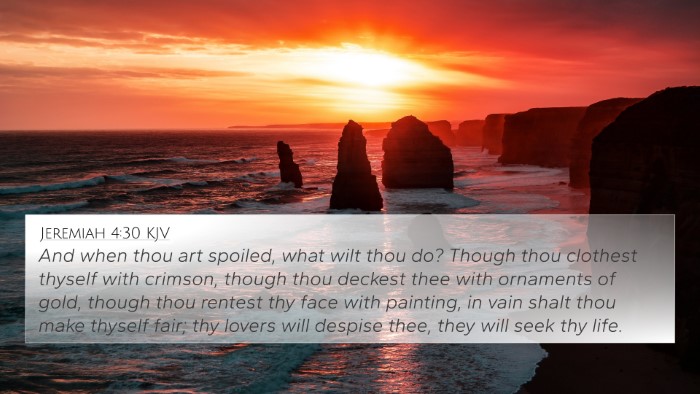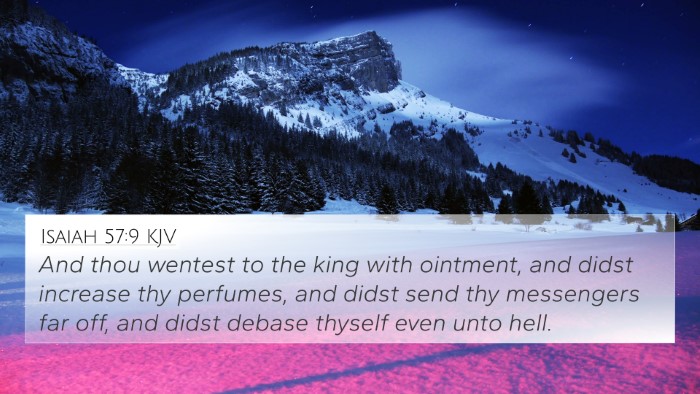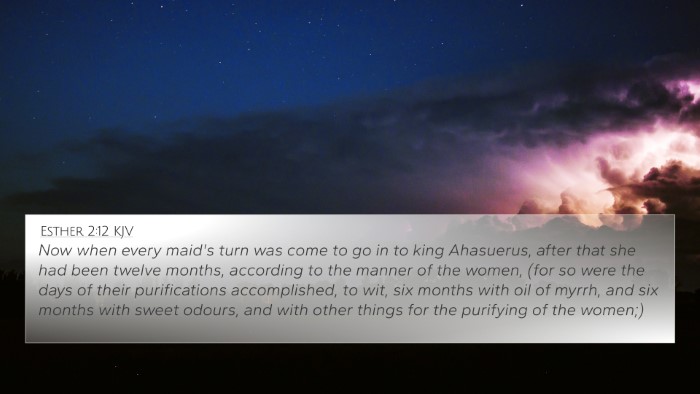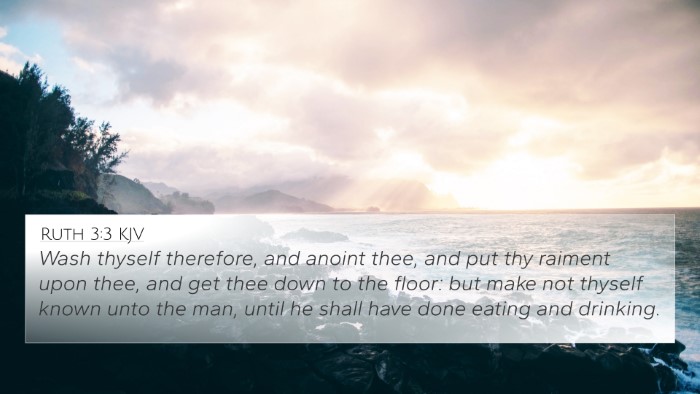Ezekiel 23:40 - Interpretation and Meaning
Ezekiel 23:40 reads: "And furthermore, that ye have sent for men to come from far, unto whom a messenger was sent; and, lo, they came: for whom thou didst wash thyself, and paintest thy eyes, and deckedst thyself with ornaments." This verse is part of a larger narrative where Ezekiel speaks allegorically about two sisters, Oholah and Oholibah, representing Samaria and Jerusalem respectively. The context is critical for understanding the implications of this verse, which engages themes of idolatry, betrayal, and unfaithfulness towards God.
Summary of Key Insights
In analyzing this passage, we draw insights from public domain commentaries:
-
Matthew Henry:
Henry discusses the unfaithfulness depicted in this verse, noting that sending for men signifies a departure from trust in God. The act of preparation for these visitors, such as washing and adorning oneself, symbolizes the seductive nature of idolatry.
-
Albert Barnes:
Barnes highlights the metaphorical representation of Jerusalem's behavior. The measures taken to attract the visitors indicate an overt and deliberate departure from the covenant relationship with God. This imagery is potent, showing the effort involved in pursuing unfaithful connections.
-
Adam Clarke:
Clarke points to the historical context of the verse, reflecting on the alliances made by Israel with foreign nations. He notes that these actions not only signify spiritual unfaithfulness but also political treachery against God’s intention for Israel to remain separate and holy.
Interpretation of Themes
This verse touches on several important themes which can be expanded through Bible verse cross-references and connections:
- Idolatry and Adultery: The metaphor of spiritual unfaithfulness is evident as God's people engage with foreign nations and deities.
- The Role of Prophets: Ezekiel, acting as God’s messenger, lays bare the consequences of such actions.
- Consequences of Disobedience: This passage foreshadows the inevitable consequences that arise from disobedience to God's commands.
Bible Cross References
To deepen our understanding, we can reference the following biblical texts:
- Jeremiah 3:6-10: Relates to the unfaithfulness of Israel and God's desire for reconciliation.
- Hosea 1:2: Using marriage as a metaphor for Israel's faithfulness to God.
- Isaiah 57:3-4: Details the spiritual infidelity of God's people.
- Ezekiel 16:30: Describes the harlotry and betrayal of God's chosen people.
- Revelation 17:1-2: Symbolizes the great harlot and her relationships with the kings of the earth.
- James 4:4: States that friendship with the world is enmity with God.
- 1 John 2:15: Instructs believers to not love the world nor the things of the world.
Deepening Understanding through Comparative Bible Analysis
The interconnectedness of scripture through Cross-referencing Biblical texts allows believers to see the broader narrative God has woven through His word. Each of these verses reinforces the caution against idolatry and the call for fidelity to God.
The Practical Application of Cross-Referencing
For students of scripture, knowing how to use Bible cross-references can illuminate the themes present in Ezekiel 23:40. For effective cross-referencing Bible study:
- Utilize a Bible concordance to track themes of faithfulness and idolatry.
- Engage in Cross-reference Bible study sessions to explore the connections to faithfulness seen in the New Testament.
- Look for comprehensive cross-reference materials that highlight the interconnectedness of Old and New Testament themes.
Conclusion
In summary, Ezekiel 23:40 serves as a vivid reminder of the dangers of spiritual infidelity and the allure of external influences that draw people away from a faithful relationship with God. By examining this verse and its connections through scriptural cross-referencing, we gain a deeper appreciation for the call to maintain fidelity to God's commands and the prophetic warnings that highlight the consequences of relational betrayal.
